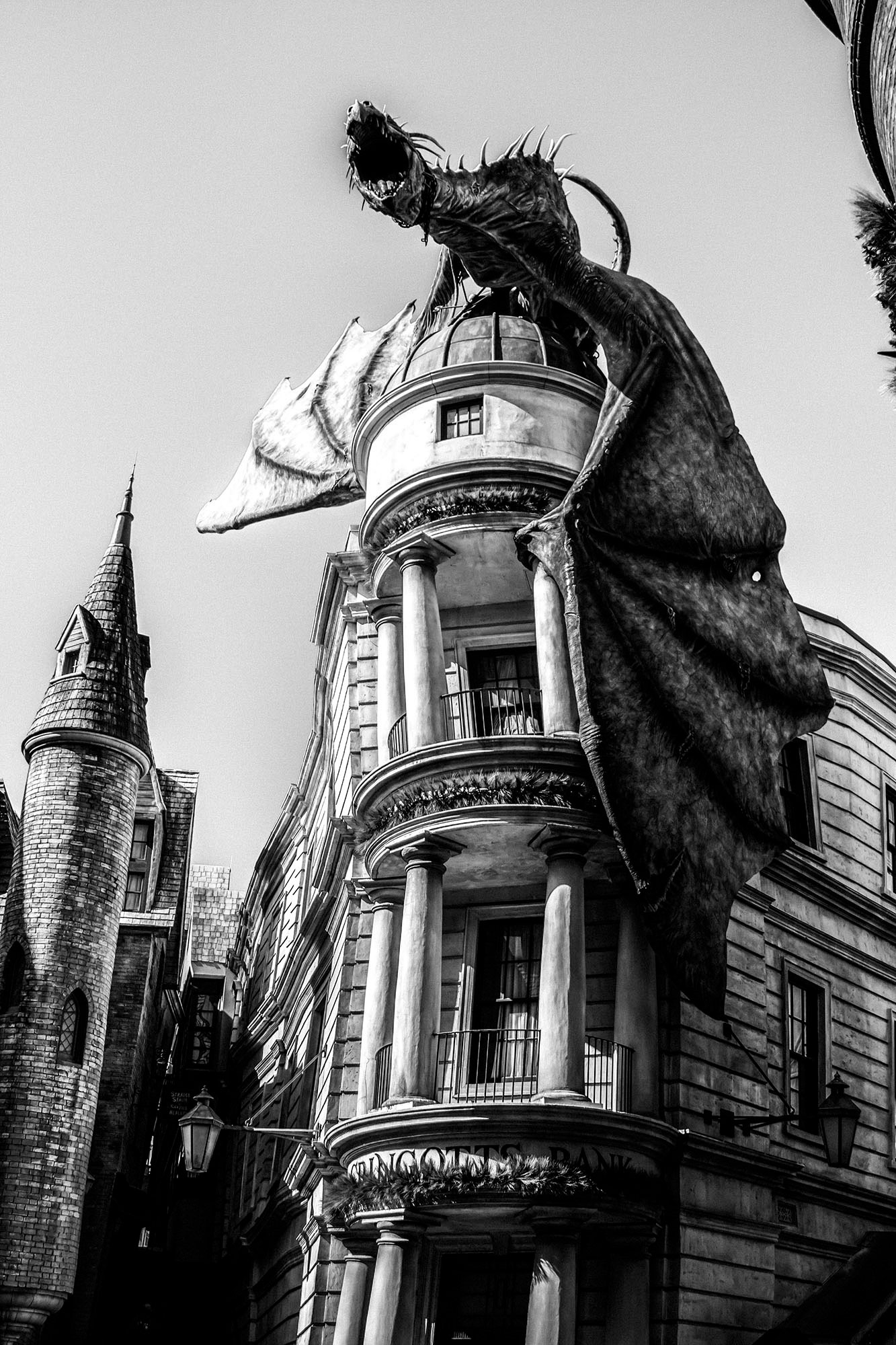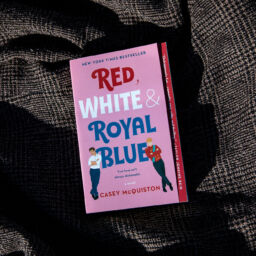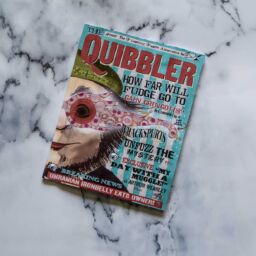I was born in 1998. I am Generation Z. For my entire conscious life, I have always had two things: Harry Potter and the Internet. I read Harry Potter and the Sorcerer’s Stone in the first grade. The first film I ever saw in a cinema was the Chamber of Secrets, in 2002. The love I have for the series is ingrained in my being, and even my skin through several tattoos.
Like many queer Potterhead’s, my commitment and love to the series has grown increasingly complicated. I grew up completely engrossed in Potter culture but also in an age and household where being queer was actively accepted. Harry was my first and is my oldest friend and because I reference Potter in several articles on this website, I will acknowledge what it has done for my life, but I also need to explain the nuances of this relationship, lest it becomes misconstrued. J.K. Rowling, my childhood hero, has spent years discrediting my experience as a lover of her series and as a queer person.
Jo Rowling began really dropping the ball in 2006, just four months after Twitter was created. YouTube was only a year old! The Harry Potter series wasn’t complete, the Half-Blood Prince was released in July and has been disappointing readers ever since. I’m not going to get into the nitty gritty details of everything I don’t like about the series, but the last two books really frustrate me. J.K. Rowling took the integrity of three of her most interesting supplemental characters and ground it down into a heteronormative pulp that I refuse to swallow. Yes, I am talking about Remus Lupin, Sirius Black and Nyphadora Tonks. Now, I’m not here to convince anybody anything because I can pull up Paris Review articles and you can pull up Tweets and it’s all a loop that I’m not willing to regurgitate considering this ball has been in motion for over a decade. The reality is these characters are fictional. J.K. could have said absolutely nothing and let us assume all three of these characters were queer until the end of time and it would have only helped people. The reality is, she dislikes queer people so much that she refused to let that happen. She took to Twitter. Not only are the only OBVIOUSLY queer people in the series now cis/het/dead, the one queer character within the franchise is literally the villain and is also dead. (Another author never letting the gay people are evil/kill your gays trope die)

The Harry Potter series was completed in 2007 with the final installment being the Deathly Hallows. I was nine years old. At nine years old, I felt like my life was already over and my literary aspirations had vanished overnight upon reading those last few pages of the series. This feeling of total desolation after reading is continuously reoccurring in my life, the hardest part about reading has always been figuring out how to get past the grieving stage, pick up another book and allow it to rip my heart open in its own way. Sometimes it’s easier than others, but every now and again I’ll read a story and get to the end and be left knowing that the story isn’t finished. One of my art teachers in high school imbued to me the notion that “all great art poses questions and that you cannot answer all of them.” This idea makes creating art mysterious and exciting, while consuming it neverendingly painful.
As a tween with an insatiable need for more Potter content and absolutely no parental supervision when it came to the Internet, there’s only one thing that could have happened. I found Fan Fiction.
The best place to find fanfiction in the early 2000’s was on fanfiction.net, an automated archival site where people publish stories using plotlines or characters from their favorite book, movie, TV show or video game and then those stories can then be read and shared for free with anyone willing to read them. Harry Potter is the highest category on their site to this day, boasting over 839k stories within the Wizarding World Universe.
At first, my consumption of fan fiction felt like a dirty secret that I needed to hide. Mostly, it just felt really nerdy, and I knew I’d be teased, but I was also reading really smutty one shots about Harry and Ginny. As time advanced, I found other nerdy friends who loved Harry Potter and they showed me new worlds like Twilight, Percy Jackson and The Hunger Games. Loving these stories also meant loving fan fiction and role play groups, we’d trade one-shots like Pokémon cards, baked blue birthday cakes and cosplayed with such subtly that only we could notice when we were out. I listened to way too much Green Day and refused to leave the house without eyeliner because the coolest person I could imagine was Thalia Grace and through imitating her, I felt closer to myself. The biggest part of reading when I was younger was the complete unironic submersal into accepting these worlds told in books and doing everything we could to feel those worlds collide with our daily lives.
High school completely irradicated this aspect of my life. I hate to admit to being a total spineless conformist, but in high school I absolutely was. I just wasn’t willing to be bullied for the things I liked, so I hid them from everyone and eventually I managed to hide them from myself. I left the obsession I had with reading and fan fiction in childhood with dust clouds and no over the shoulder glances.
Until 2020.
In 2020, I was on my ass. I was back to living with my parents, recently diagnosed Bipolar, struggling to maintain my sobriety, my mother was battling breast cancer and overall, I was just an extremely sad human being. And then Covid 19 rampaged the world. Like many other people when Covid was first hitting, I got laid off from work and found myself at home, afraid out of my mind with basically nothing to do. I was fortunate enough to find myself reaching to an all too familiar crutch- the Harry Potter books. Now, I had read these books in adulthood and dozens of times within my childhood, but something about reading them in the spring of 2020 was different. I just couldn’t stop thinking about them. I would lay in bed at night and keep myself awake aching with questions, digging myself into the abyss with the unnerving feeling that the story wasn’t finished because I didn’t understand how we got there in the first place. And then it hit me, and I knew. There absolutely had to be a prequel and by no circumstances could that prequel be written by J.K. Rowling.
I’d say that I went properly insane for about a month. It was a whirlwind of a month filled with delirium and penance. I scoured the internet researching everything I could possibly find about the twenty years prior to Harry’s defeat of Voldemort. I filled notebooks with questions and theories. I joined Tumblr discussion boards and Facebook groups and I screamed into the void asking “is no one as upset as I am? Are we all just going to pretend that this makes sense? I need to know.”
I started a new job. I made a new friend at the job. She noticed the red ink tattooed on the back of my hand in all too familiar handwriting that said, “I must not tell lies.” She said she was a Harry Potter fan. She showed me photos of her cosplaying as Luna in high school, proving her devotion. I took a deep sigh of relief and began to soliloquize. I asked her the questions that kept me up at night in agony. I showed her the Paris Review article. We discussed timeline in detail. After hours, she understood. And she agreed and my manic thoughts were now directed somewhere. Now, I wasn’t alone. We both had to understand, and we would find out together, through talking and reading and transporting ourselves there.
Tumblr answered the call. There was a mutual consensus within the fandom that the types of questions I was asking were questions that were eating at all of us and only one person had managed to make sense of it. She wrote under the pseudonym MsKingBean89 where she published an eight book prequal to the Harry Potter series called All the Young Dudes. Now, I was skeptical. Most fanfiction is poorly written or just doesn’t make sense to the original story or can be heading in a great direction but be left abandoned at the post by its author. But still, these Tumblr kids were insisting that this was what I was looking for and I was too curious to not try.
All the Young Dudes is long. It’s over 500k words and spans over a decade in time. The story takes place from the perspective of a young Remus Lupin, starting at the summer before he starts school at Hogwarts and ending with Voldemort’s return. The story completely enamored me and focused on the unyielding truth that is we know what happens to these people, but what’s interesting is how we get there. Harry Potter as a series has always had a rich plot and extremely explorable lore, but the heart of the series is known to be with its characters. All the Young Dudes takes characters that we knew as children and recreates them into major players, excavating the path that we know Harry to take. She gives us time to bond with the people we know, creates original characters that feel completely integral to the story and then forces us to mourn them all for who they are- human beings. The death of teachers, parents or traitors in the Harry Potter series was told at an arm’s length, read through the eyes of children who couldn’t feel the severity or sacrifice that these people made. MsKingBean89 tears down the veil and reminds us that these people were also students and friends and children; they fought and had sex and smoked weed and listened to Bowie. Losing them felt more nauseating and real than any death within the original series. Every laugh you have within the story is clouded with the unwavering verity being that he’s going to betray them, he’s going to prison, they’re going to die and he’s going to be alone.
What’s so impressive about All the Young Dudes as a series is that it felt like the truth, and it still does to those who have read it. I’ve shared it with dozens of friends, all of whom agree that MsKingBean89 understood Remus and the Marauders greater than Jo ever did. What is canon feels intermingled between the two timelines and it’s nearly impossible for me to differentiate what I know to be sincere because J.K. Rowling started lying. She felt the pressures of the public and tried to coax her audience into perceiving the story with only her perspective in mind. She took to Twitter to eradicate any theory that didn’t coincide with her personal beliefs, completely disregarding the interpretations of her readers and rejecting their observations. In short, she took the fun out of it by not allowing us to interpret or to question. Her gay-dar is nonexistent, but just because she can’t identify queer people within her own writing, doesn’t mean we can’t. This goes for any reader author relationship; a straight person can read the Picture of Dorian Gray and have an entirely different experience than a queer person because what they read isn’t romantic to them. But to us, we know, we don’t need to ask Oscar Wilde’s permission.
What J.K. Rowling has been doing on Twitter is no different than what happened with the iconic tale Little Women by Louisa May Alcott. Little Women was published in two parts, the first part taking place during childhood and the second preceding seven years later. After the first part of her story was released, Alcott was flooded with fan mail expressing complete desperation for Jo to end up with her best friend and neighbor, Laurie. Enraged that her readers didn’t comprehend her character’s disdain for marriage and need for independence, she stated, “girls write to ask who the little women will marry, as if that was the only aim and end of a woman’s life. I won’t marry Jo to Laurie to please anyone.” While this sentiment is genuine and would be a triumph for feminist literature, it only works if Jo hadn’t married anyone; instead, her publisher forced her to marry her to someone, leaving a spiteful Alcott to marry Jo off to someone ugly and poor to prove a point. If there was no audience, money or publisher involved at the time of writing, the story would most likely end completely differently. Which bring me to conclude that fan fiction in some cases is more valuable than professionally published works. What could be less inhibiting and more genuine than someone writing under an alias, for absolutely no money or fame, with only the intent to tell a story how they know to be true simply for the love of writing.
I implore you, as readers, to read closely. Look in between the lines of the literature you consume and allow lifetimes to be birthed between syllables. These stories have proven to be valuable and publishable.







I love this. Had me tearing up a little bit. Fan fiction is important.
Books belong to the readers! There’s no feeling like immersing and imagining and interpreting so that these works of fiction not only stimulate and enrapture us, but also help us cope with the reality of life (thanks high school, puberty, Covid)!
How lovely to read that such a volatile time in all of our lives brought new meaning to yours. Well done!
And suck my queer ass Jo!!!
Potter is ours 💅🏻
Thanks for your blog, nice to read. Do not stop.